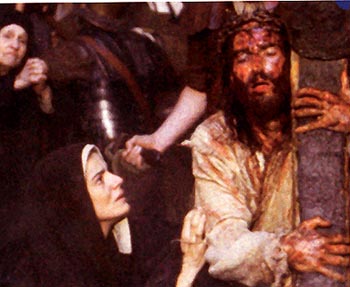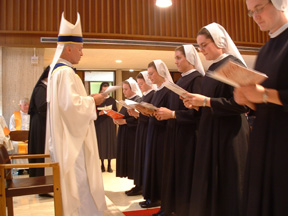
Dear Brothers and Sisters,
'We have just heard in the Gospel the message given by the angels to the shepherds during that Holy Night, a message which the Church now proclaims to us: "
To you is born this day in the city of David a Saviour, who is Christ the Lord. And this will be a sign for you: you will find a babe wrapped in swaddling clothes and lying in a manger" (
Lk 2:11-12). Nothing miraculous, nothing extraordinary, nothing magnificent is given to the shepherds as a sign. All they will see is a child wrapped in swaddling clothes, one who, like all children, needs a mother’s care; a child born in a stable, who therefore lies not in a cradle but in a manger. God ’s sign is the baby in need of help and in poverty. Only in their hearts will the shepherds be able to see that this baby fulfils the promise of the prophet Isaiah, which we heard in the first reading: "
For to us a child is born, to us a son is given; and the government will be upon his shoulder" (
Is 9:5). Exactly the same sign has been given to us. We too are invited by the angel of God, through the message of the Gospel, to set out in our hearts to see the child lying in the manger.
'God’s sign is simplicity. God’s sign is the baby. God’s sign is that he makes himself small for us. This is how he reigns. He does not come with power and outward splendour. He comes as a baby – defenceless and in need of our help. He does not want to overwhelm us with his strength. He takes away our fear of his greatness. He asks for our love: so he makes himself a child. He wants nothing other from us than our love, through which we spontaneously learn to enter into his feelings, his thoughts and his will – we learn to live with him and to practise with him that humility of renunciation that belongs to the very essence of love.
'God made himself small so that we could understand him, welcome him, and love him. The Fathers of the Church, in their Greek translation of the Old Testament, found a passage from the prophet Isaiah that Paul also quotes in order to show how God’s new ways had already been foretold in the Old Testament. There we read: "God made his Word short, he abbreviated it" (
Is 10:23; Rom 9:28). The Fathers interpreted this in two ways. The Son himself is the Word, the
Logos; the eternal Word became small – small enough to fit into a manger. He became a child, so that the Word could be grasped by us.
'In this way God teaches us to love the little ones. In this way he teaches us to love the weak. In this way he teaches us respect for children. The child of Bethlehem directs our gaze towards all children who suffer and are abused in the world, the born and the unborn. Towards children who are placed as soldiers in a violent world; towards children who have to beg; towards children who suffer deprivation and hunger; towards children who are unloved. In all of these it is the Child of Bethlehem who is crying out to us; it is the God who has become small who appeals to us. Let us pray this night that the brightness of God’s love may enfold all these children. Let us ask God to help us do our part so that the dignity of children may be respected. May they all experience the light of l ove, which mankind needs so much more than the material necessities of life.
'And so we come to the second meaning that the Fathers saw in the phrase: "God made his Word short". The Word which God speaks to us in Sacred Scripture had become long in the course of the centuries. It became long and complex, not just for the simple and unlettered, but even more so for those versed in Sacred Scripture, for the experts who evidently became entangled in details and in particular problems, almost to the extent of losing an overall perspective. Jesus "abbreviated" the Word – he showed us once more its deeper simplicity and unity. Everything taught by the Law and the Prophets is summed up – he says – in the command: "
You shall love the Lord your God with all your heart, and with all your soul, and with all your mind… You shall love your neighbour as yourself" (
Mt 22:37-40). This is everything – the whole faith is contained in this one act of love which embraces God and humanity.
'Yet now further questions arise: how are we to love God with all our mind, when our intellect can barely reach him? How are we to love him with all our heart and soul, when our heart can only catch a glimpse of him from afar, when there are so many contradictions in the world that would hide his face from us?
'This is where the two ways in which God has "abbreviated" his Word come together. He is no longer distant. He is no longer unknown. He is no longer beyond the reach of our heart. He has become a child for us, and in so doing he has dispelled all doubt. He has become our neighbour, restoring in this way the image of man, whom we often find so hard to love. For us, God has become a gift. He has given himself. He has entered time for us. He who is the Eternal One, above time, he has assumed our time and raised it to himself on high.
'Christmas has become the Feast of gifts in imitation of God who has given himself to us. Let us allow our heart, our soul and our mind to be touched by this fact! Among the many gifts that we buy and receive, let us not forget the true gift: to give each other something of ourselves, to give each other something of our time, to open our time to God. In this way anxiety disappears, joy is born, and the feast is created.
'During the festive meals of these days let us remember the Lord’s words: "
When you give a dinner or a banquet, do not invite those who will invite you in return, but invite those whom no one invites and who are not able to invite you" (
cf. Lk 14:12-14). This also means: when you give gifts for Christmas, do not give only to those who will give to you in return, but give to those who receive from no one and who cannot give you anything back. This is what God has done: he invites us to his wedding feast, something which we cannot reciprocate, but can only receive with joy. Let us imitate him! Let us love God and, starting from him, let us also love man, so that, starting from man, we can then rediscover God in a new way!
'And so, finally, we find yet a third meaning in the saying that the Word became "brief" and "small". The shepherds were told that they would find the child in a manger for animals, who were the rightful occupants of the stable. Reading Isaiah (1:3), the Fathers concluded that beside the manger of Bethlehem there stood an ox and an ass. At the same time they interpreted the text as symbolizing the Jews and the pagans – and thus all humanity – who each in their own way have need of a Saviour: the God who became a child.
'Man, in order to live, needs bread, the fruit of the earth and of his labour. But he does not live by bread alone. He needs nourishment for his soul: he needs meaning that can fill his life. Thus, for the Fathers, the manger of the animals became the symbol of the altar, on which lies the Bread which is Christ himself: the true food for our hearts. Once again we see how he became small: in the humble appearance of the host, in a small piece of bread, he gives us himself.
'All this is conveyed by the sign that was given to the shepherds and is given also to us: the child born for us, the child in whom God became small for us.
'Let us ask the Lord to grant us the grace of looking upon the crib this night with the simplicity of the shepherds, so as to receive the joy with which they returned home (
cf. Lk 2:20). Let us ask him to give us the humility and the faith with which Saint Joseph looked upon the child that Mary had conceived by the Holy Spirit. Let us ask the Lord to let us look upon him with that same love with which Mary saw him. And let us pray that in this way the light that the shepherds saw will shine upon us too, and that what the angels sang that night will be accomplished throughout the world: "
Glory to God in the highest, and on earth peace among men with whom he is pleased." Amen!'
Homily by Pope Benedict XVIMass at Midnight 2006(translation by the Holy See)
 A Penitent Blogger
A Penitent Blogger

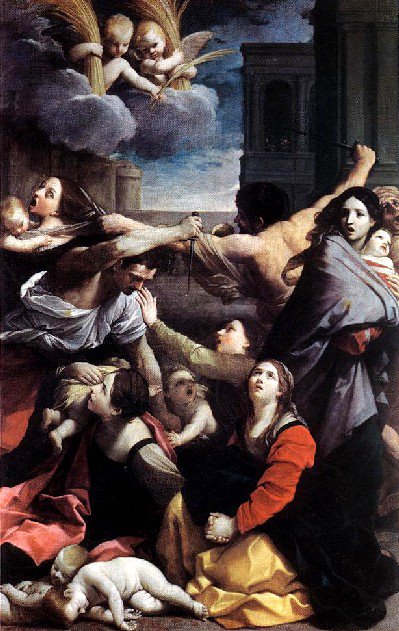


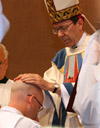



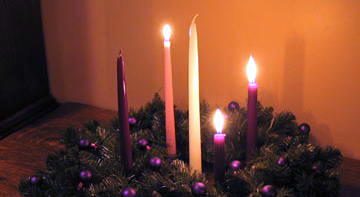

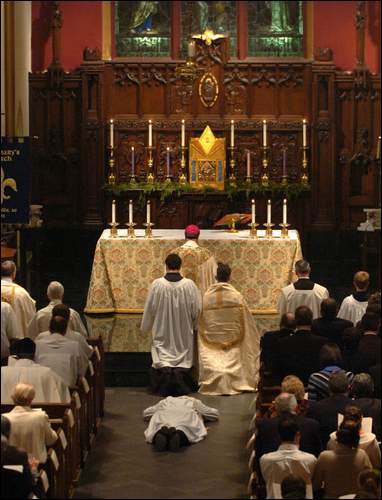

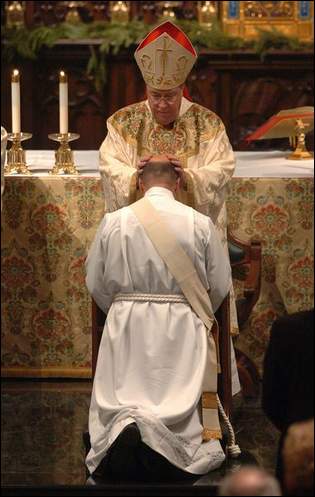 The Most Reverend Robert J. Baker, bishop of Charleston, ordains to the Priesthood Dwight Joseph Longenecker - former Evangelical and alumnus of Bob Jones University, former Anglican priest and alumnus of Oxford University, husband and father - Thursday, December 14, 2006 - St. Mary's Catholic Church, Greenville, SC.
The Most Reverend Robert J. Baker, bishop of Charleston, ordains to the Priesthood Dwight Joseph Longenecker - former Evangelical and alumnus of Bob Jones University, former Anglican priest and alumnus of Oxford University, husband and father - Thursday, December 14, 2006 - St. Mary's Catholic Church, Greenville, SC.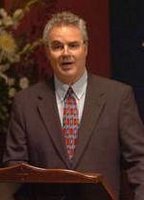


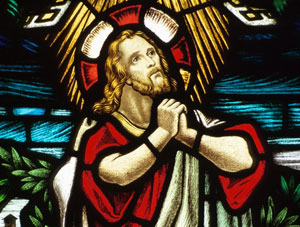

 "People often ask us how they can help promote vocations. Absolutely the first way is to pray the Lord of the Harvest to send laborers into His vineyard. In our culture today, men and women need the help of our prayer in order to hear the tiny whisper of the Lord amid the noise and distractions of this world. It's not easy to hear a whisper with a cell phone on one ear and an ipod on another!
"People often ask us how they can help promote vocations. Absolutely the first way is to pray the Lord of the Harvest to send laborers into His vineyard. In our culture today, men and women need the help of our prayer in order to hear the tiny whisper of the Lord amid the noise and distractions of this world. It's not easy to hear a whisper with a cell phone on one ear and an ipod on another!
